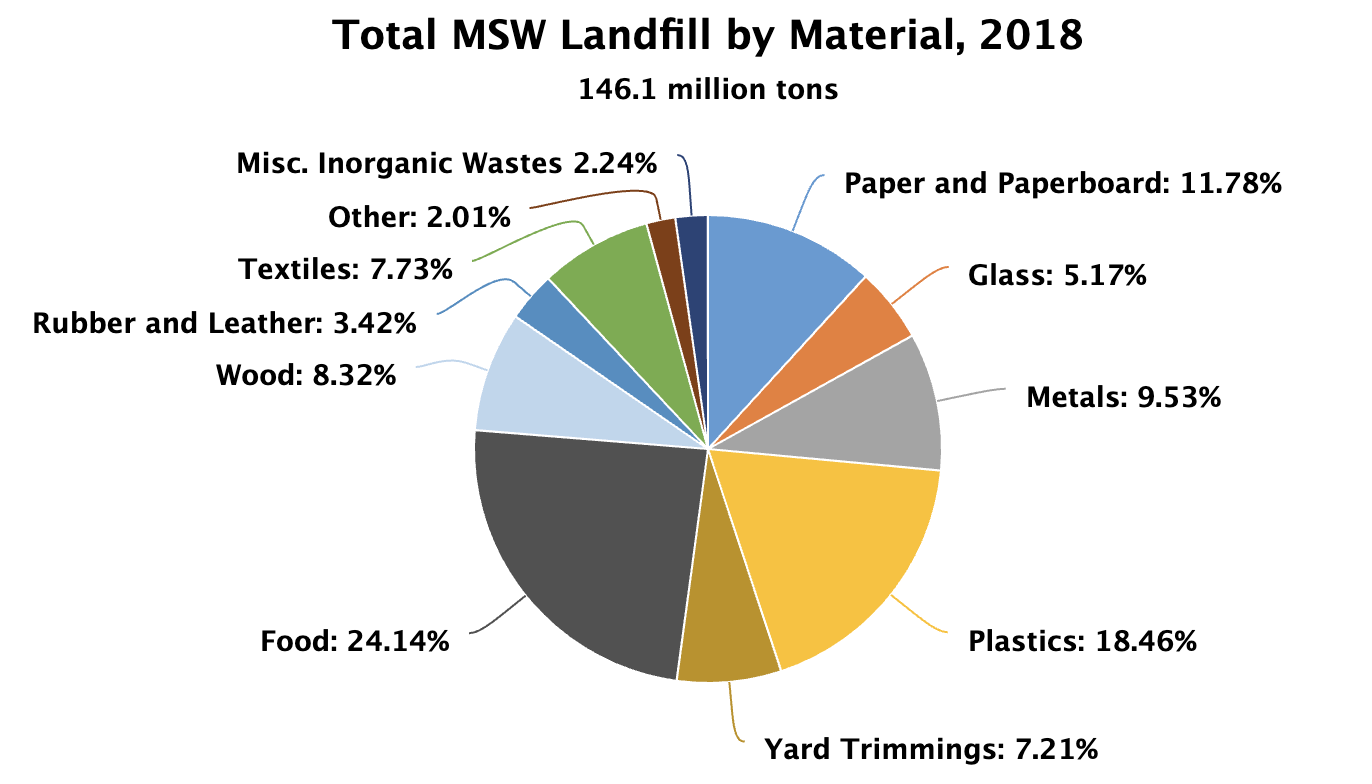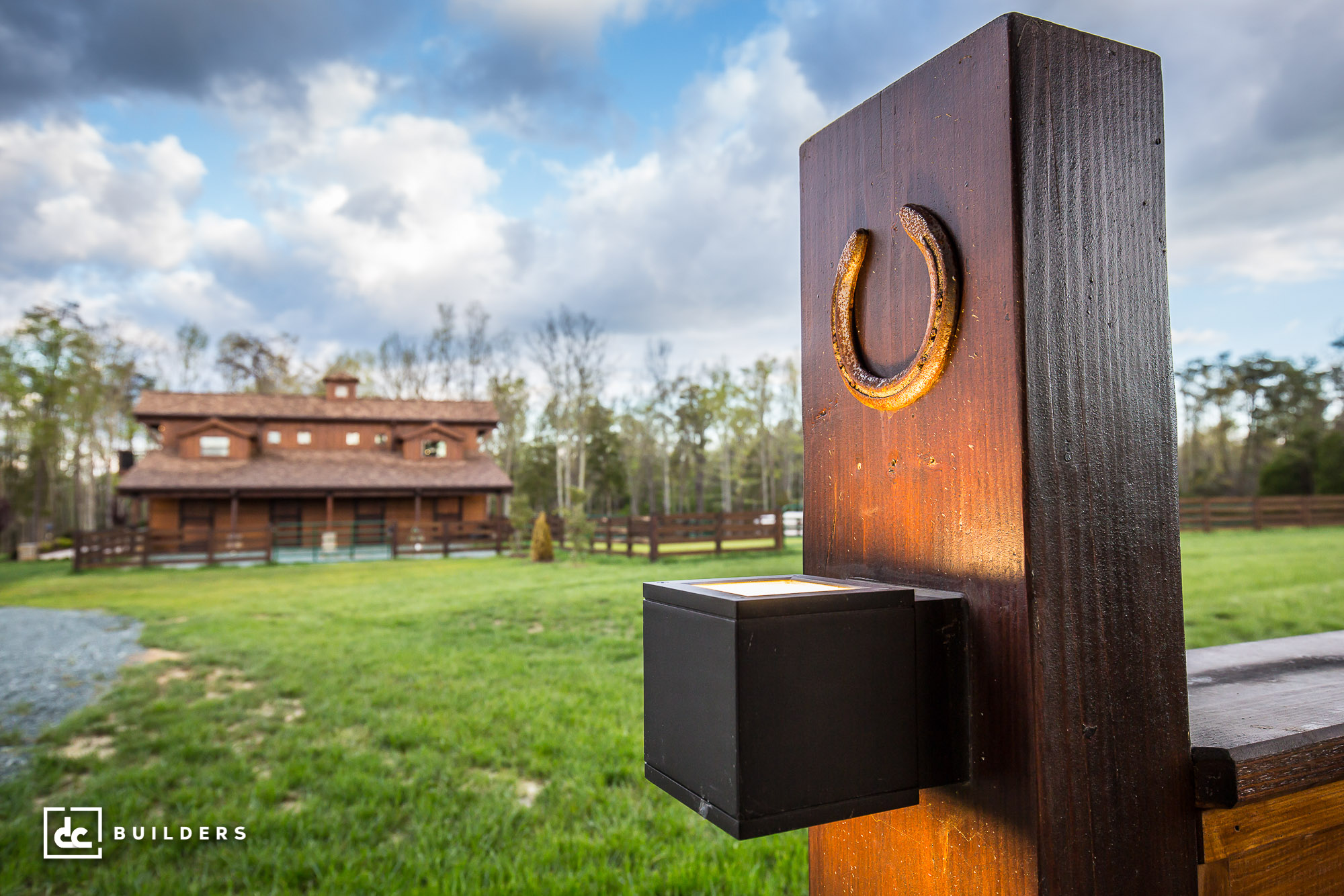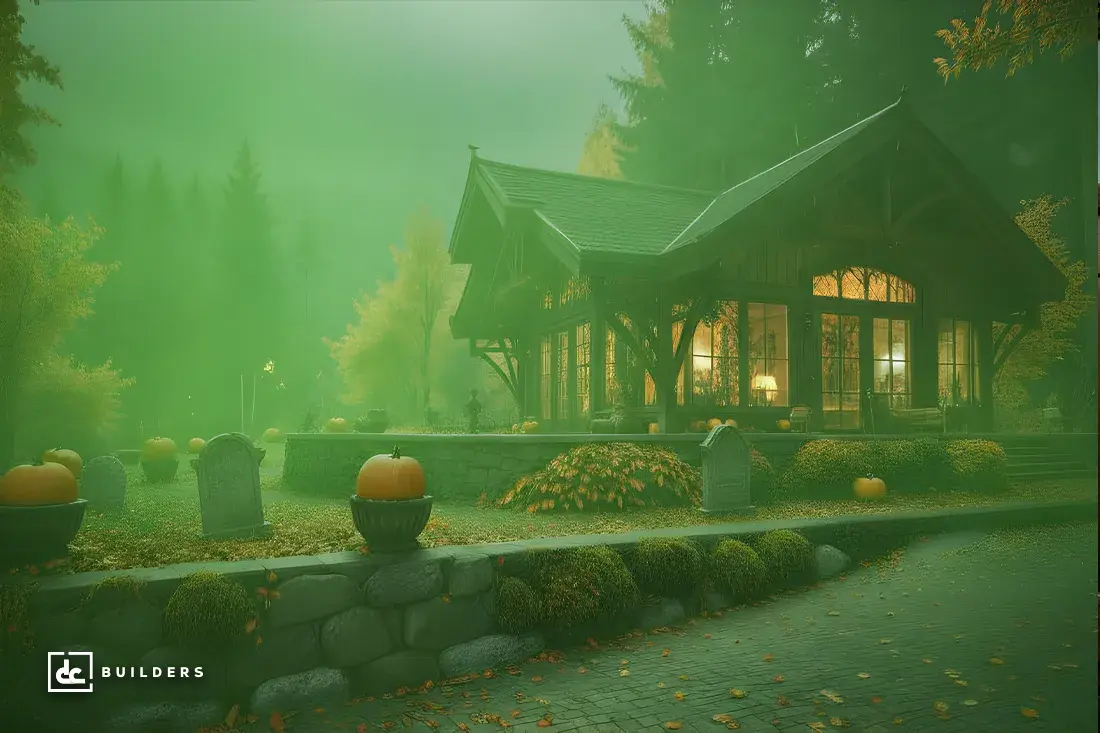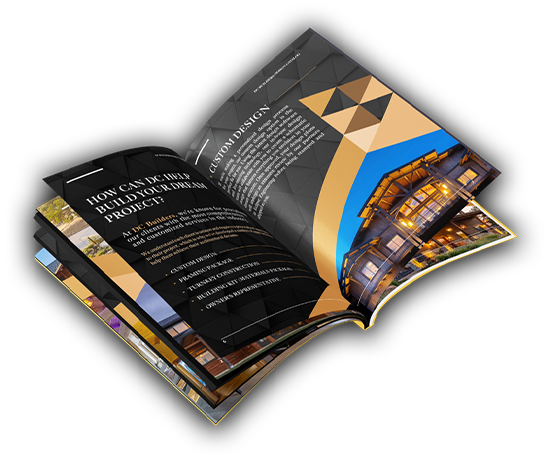If you’re looking for a simple, low-cost way to make your home more sustainable, composting is one of the best places to start.
In 2018, about 146.1 million tons of Municipal Solid Waste (MSW) were landfilled; food was the largest component at over 24 percent while paper and paperboard made up about 12 percent. While not every food scrap and piece of paper can escape landfills, conscious efforts like recycling and composting can help mitigate the literal tons of food scraps and yard waste that end up in landfills, where they break down into harmful greenhouse gases.
epa.gov (source)
While you might have heard the term “composting” thrown around, especially in the last decade or so, for many there’s still quite a bit of mystery surrounding the practice, so let’s start by defining what composting is and what can be composted.
What is Composting?
Composting is the natural process of recycling organic materials such as food scraps, grass clippings, and leaves into nutrient-rich soil. Microorganisms and worms do the work of breaking down waste into compost, which can then be used in gardens, landscaping, and even indoor plants! Think of it as nature’s way of closing the loop: instead of throwing organic matter “away,” you give it a second life.
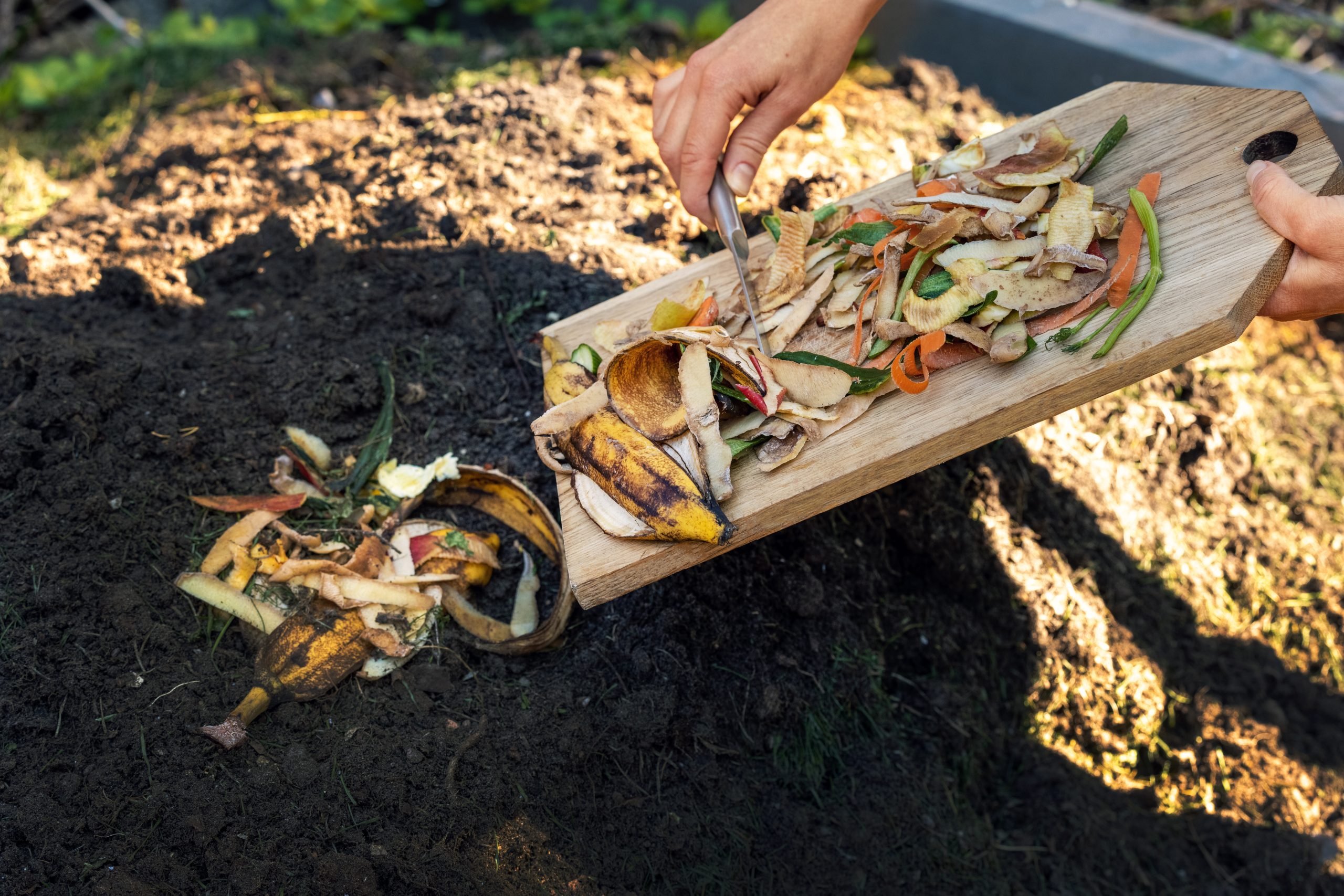
What Can Be Composted?
Most organic materials can be composted, but the easiest way to remember is to focus on “greens” and “browns.”
- Greens: These will be your fruit and vegetable scraps, coffee grounds, tea bags, grass clippings, and plant trimmings.
- Browns: Brown compost will be your dried leaves, twigs, shredded cardboard, paper towels, and sawdust.
What you want to avoid: meat, dairy, oily foods, or anything treated with chemicals, as these can cause odor, pests, or imbalance in your pile.
By composting at home, you’re doing so much more than keeping valuable organics out of the trash: you’re cutting down on waste, and creating something truly useful for yourself and your family, all from what you’re used to throwing away!
Beyond simply turning your leftovers into essential nutrients for your soil, here are some other benefits to consider with maintaining a consistent composting routine:
1. Family-Friendly Learning
Composting is one of the easiest ways to get kids involved in sustainability! Watching food scraps break down into soil gives children a hands-on science lesson about nature’s cycles, our responsibility to the earth, and the benefits of reducing waste. Plus, it’s a fun project that the whole family can participate in.
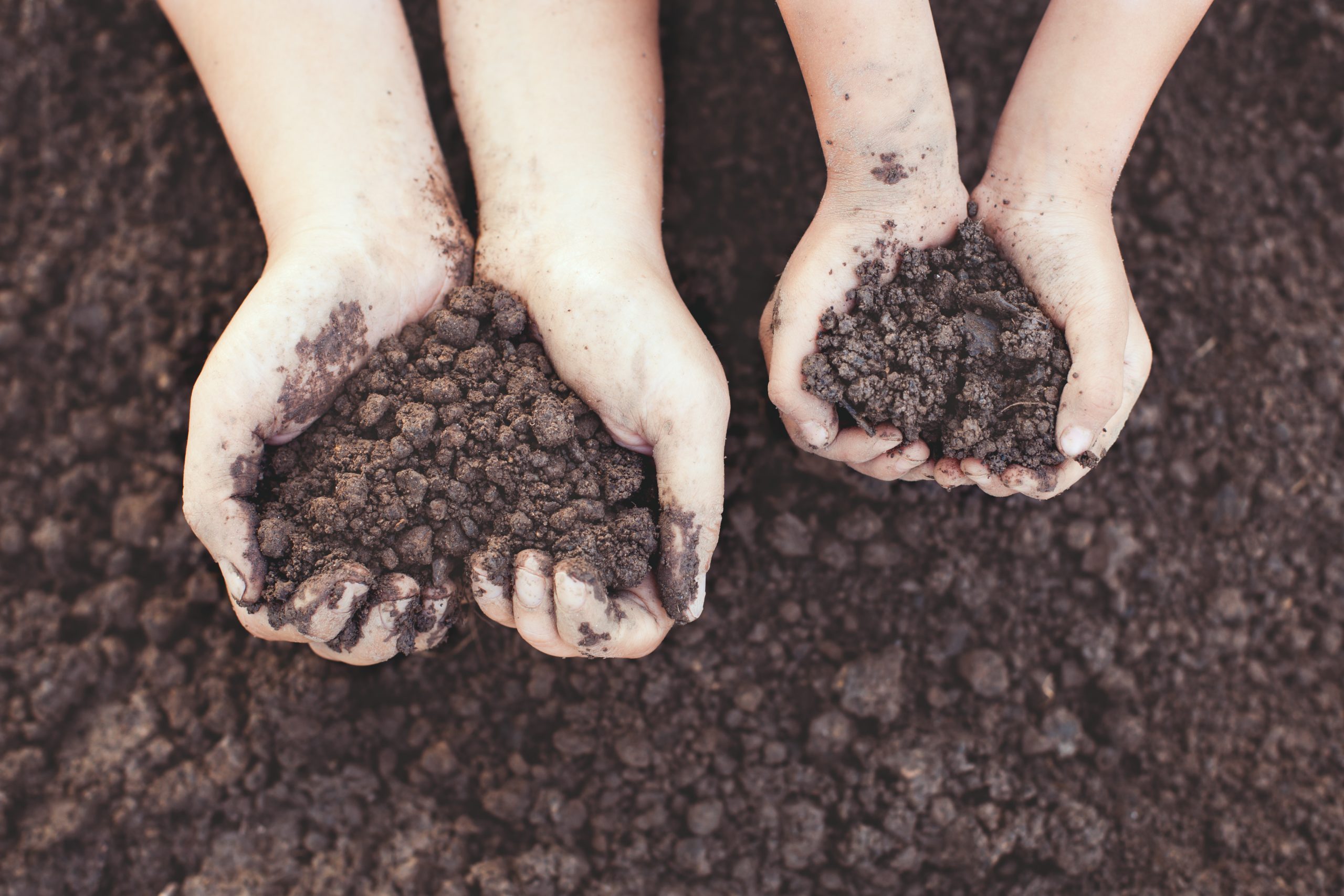
2. Keeps Wildlife Happier
For homeowners, especially those in rural areas, overflowing trash bins can attract everything from raccoons to bears. Composting cuts down on smelly garbage, keeping animals away from waste that harms both you and them, and makes your property less of a target. A well-managed compost pile doesn’t just reduce waste; it also helps maintain balance with the wildlife around you.
3. Great for Rural Homes
If you live outside the city, composting is even easier. With more outdoor space, you can set up larger compost bins or piles without crowding your property. It’s also a cost-saver: instead of producing and hauling multiple garbage bags each week, which can get expensive in rural areas, composting keeps much of that waste right on your land, transforming it into a resource instead of a problem.
4. Less Waste, Fewer Emissions
We know how easy it is to have an “out of sight, out of mind” mindset. But food waste doesn’t just disappear in a landfill; it breaks down without oxygen, creating methane—one of the most harmful greenhouse gases. By composting, you’re keeping valuable organics out of landfills and reducing your household’s carbon footprint. At the same time, you’ll notice a big drop in the volume of trash your household produces, meaning fewer bags to toss and less garbage heading to the landfill.
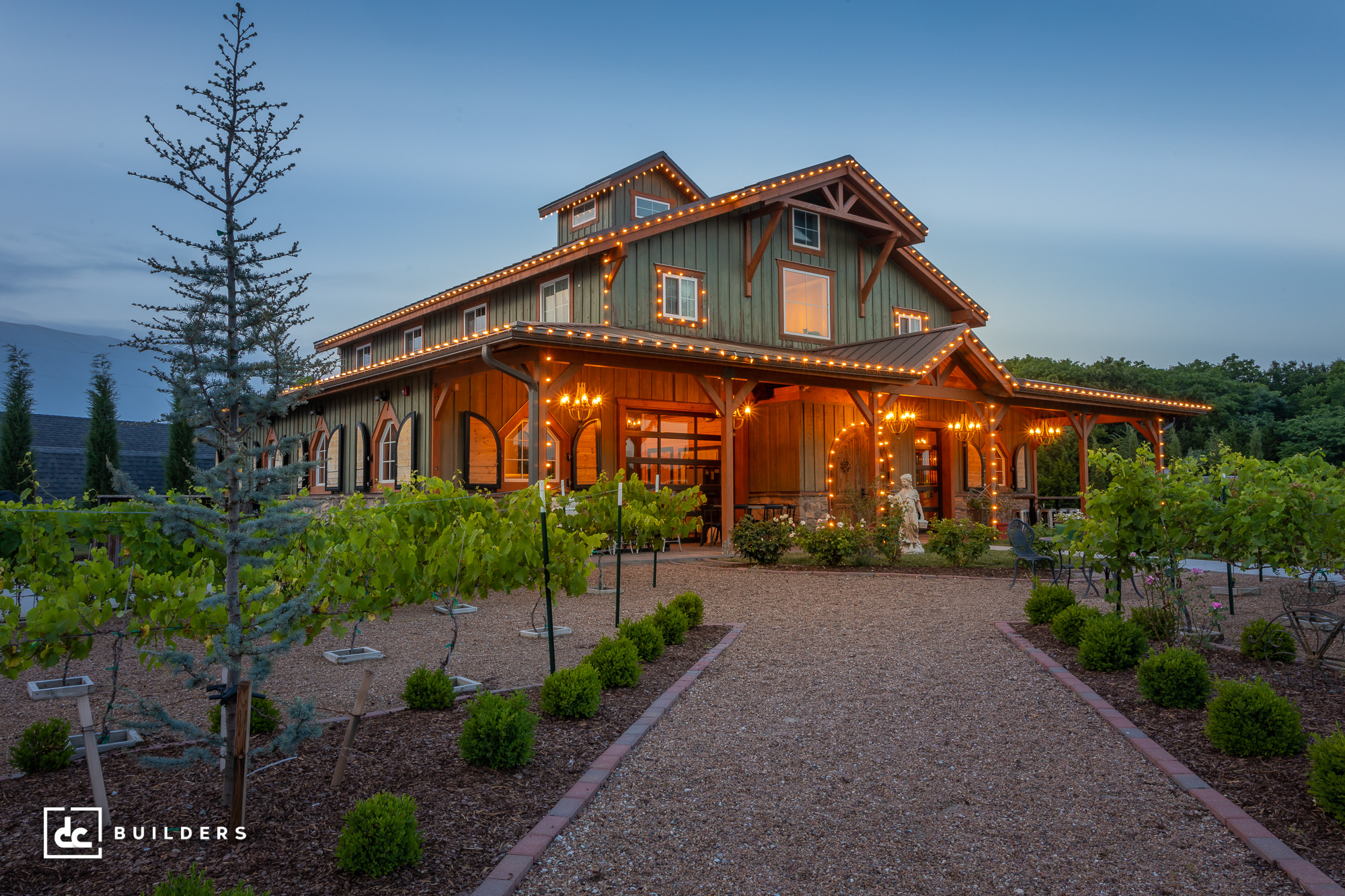
Final Thoughts
Composting doesn’t have to require fancy equipment or a green thumb—just the willingness to turn scraps into something that can actually improve your quality of life. Whether you live on a farm, in the suburbs, or in a city apartment, the benefits are wide-reaching: healthier soil, less waste, lower costs, and a more sustainable lifestyle.

